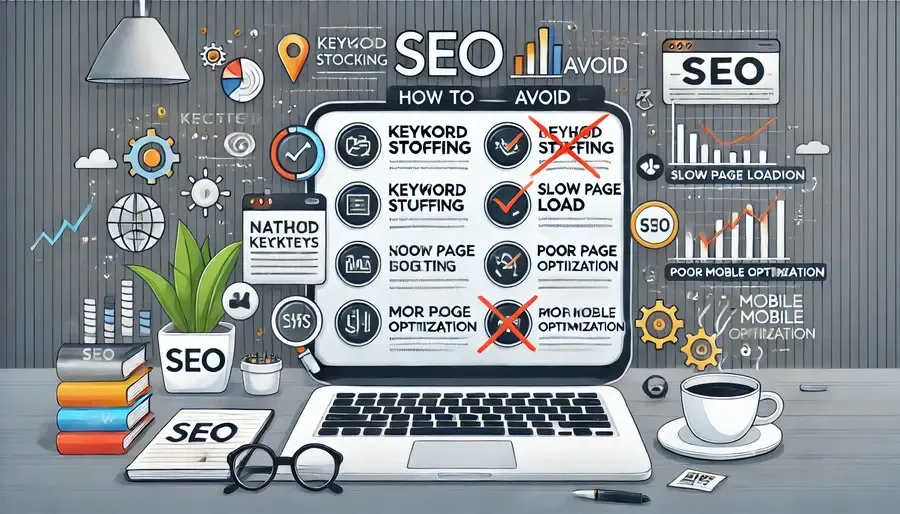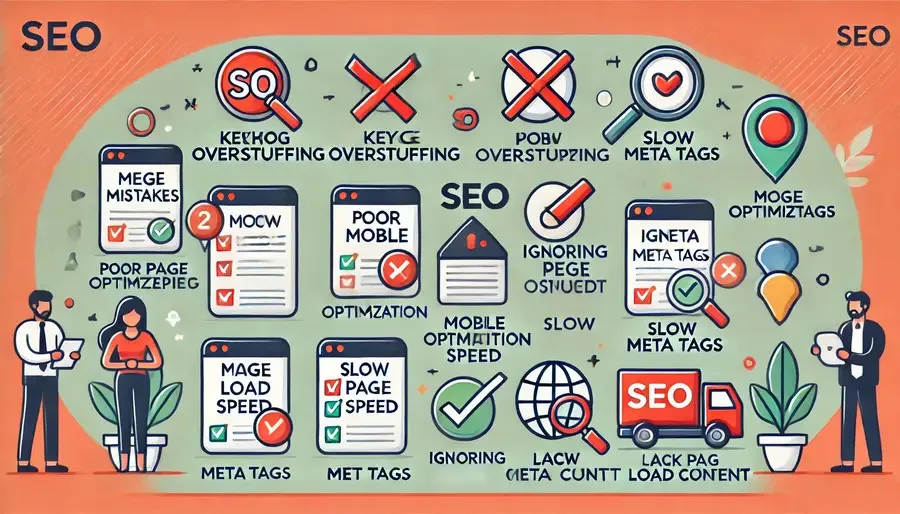
Frequent Mistakes in SEO and How to Avoid Them
SEO (Search Engine Optimization) is a crucial aspect of digital marketing, but it’s easy to make mistakes that can negatively impact your site’s ranking. Understanding these common errors and how to avoid them is essential for optimizing your online presence effectively.
Incorrect Use of Keywords
Keywords are fundamental in SEO, yet their misuse is widespread. Overstuffing keywords, using irrelevant keywords, or neglecting long-tail keywords can hinder your SEO efforts. Instead, focus on relevant, high-quality keywords and incorporate them naturally within your content.
Ignoring Mobile Optimization
With the majority of internet users accessing websites via mobile devices, ignoring mobile optimization can be detrimental. Ensure your website is mobile-friendly by using responsive design, optimizing page speed, and simplifying navigation to enhance user experience on mobile devices.
Poor Internal Re-linking
Internal linking is vital for SEO as it helps search engines understand your site’s structure and improves user navigation. A common mistake is having poor internal linking strategies, such as too many or too few links, broken links, or irrelevant link texts. Use a logical structure with meaningful anchor texts to guide users and search engines through your content.
Ignoring Meta Tags and Descriptions
Meta tags and descriptions provide search engines and users with information about your site’s content. Neglecting to include or optimize these elements can result in lower click-through rates and poor search rankings. Craft compelling and keyword-rich meta tags and descriptions to improve visibility and attract clicks.

Lack of Quality Content
Quality content is the backbone of SEO. Creating thin, duplicate, or irrelevant content can lead to high bounce rates and lower rankings. Focus on producing original, valuable, and engaging content that addresses the needs and interests of your audience. Regularly update your content to keep it fresh and relevant.
Slow Page Load Speed
Page load speed is a critical factor in both user experience and SEO. Slow-loading pages frustrate users and lead to higher bounce rates, which negatively affects your rankings. Optimize images, use caching, and minimize code to improve your site’s load speed and enhance user satisfaction.
Ignoring SEO Analysis and Monitoring
SEO is not a one-time task but an ongoing process that requires regular analysis and monitoring. Ignoring SEO analytics and failing to adjust strategies based on performance data can result in missed opportunities and persistent issues. Use tools like Google Analytics and Search Console to track your performance, identify problems, and refine your SEO strategy continuously.
Avoiding these common SEO mistakes involves a combination of strategic keyword use, mobile optimization, effective internal linking, proper meta tag usage, high-quality content creation, fast page load speeds, and regular SEO analysis. By addressing these areas, you can enhance your site’s search engine ranking and provide a better experience for your users.
